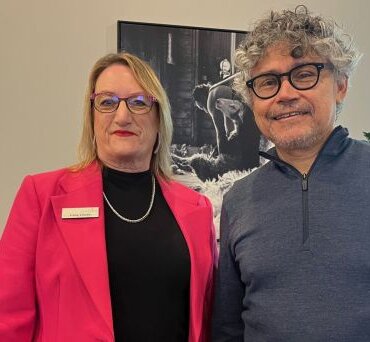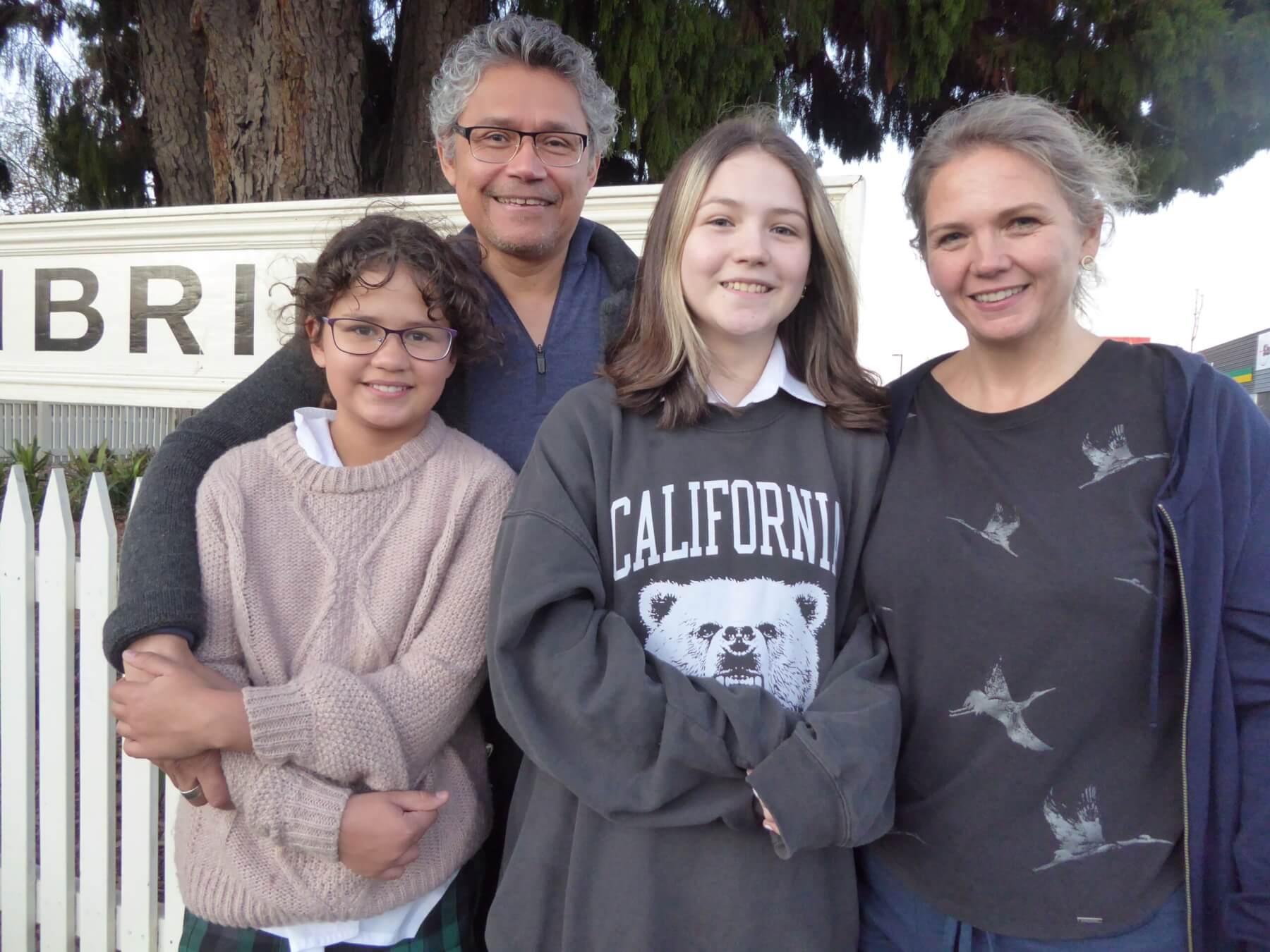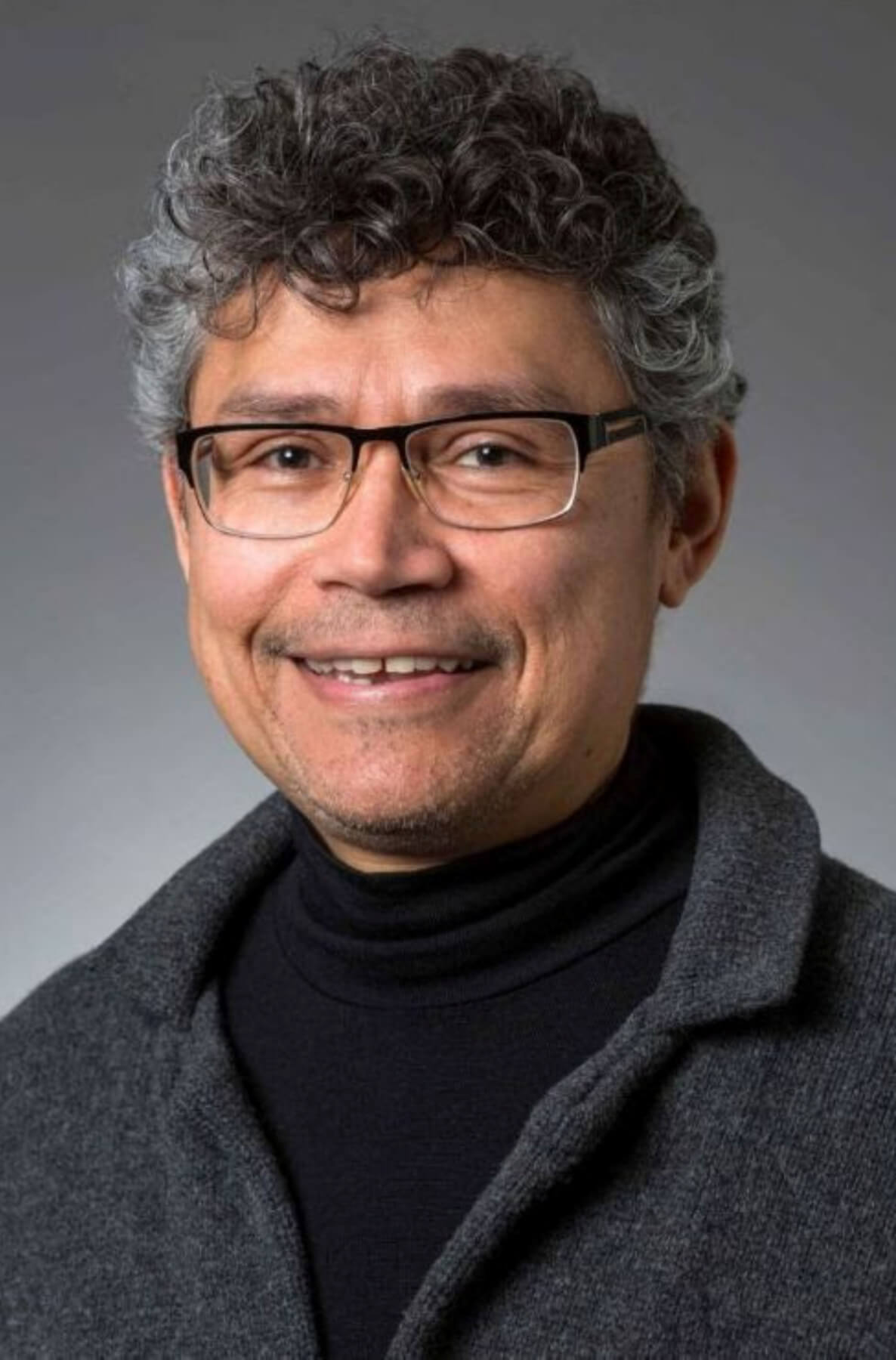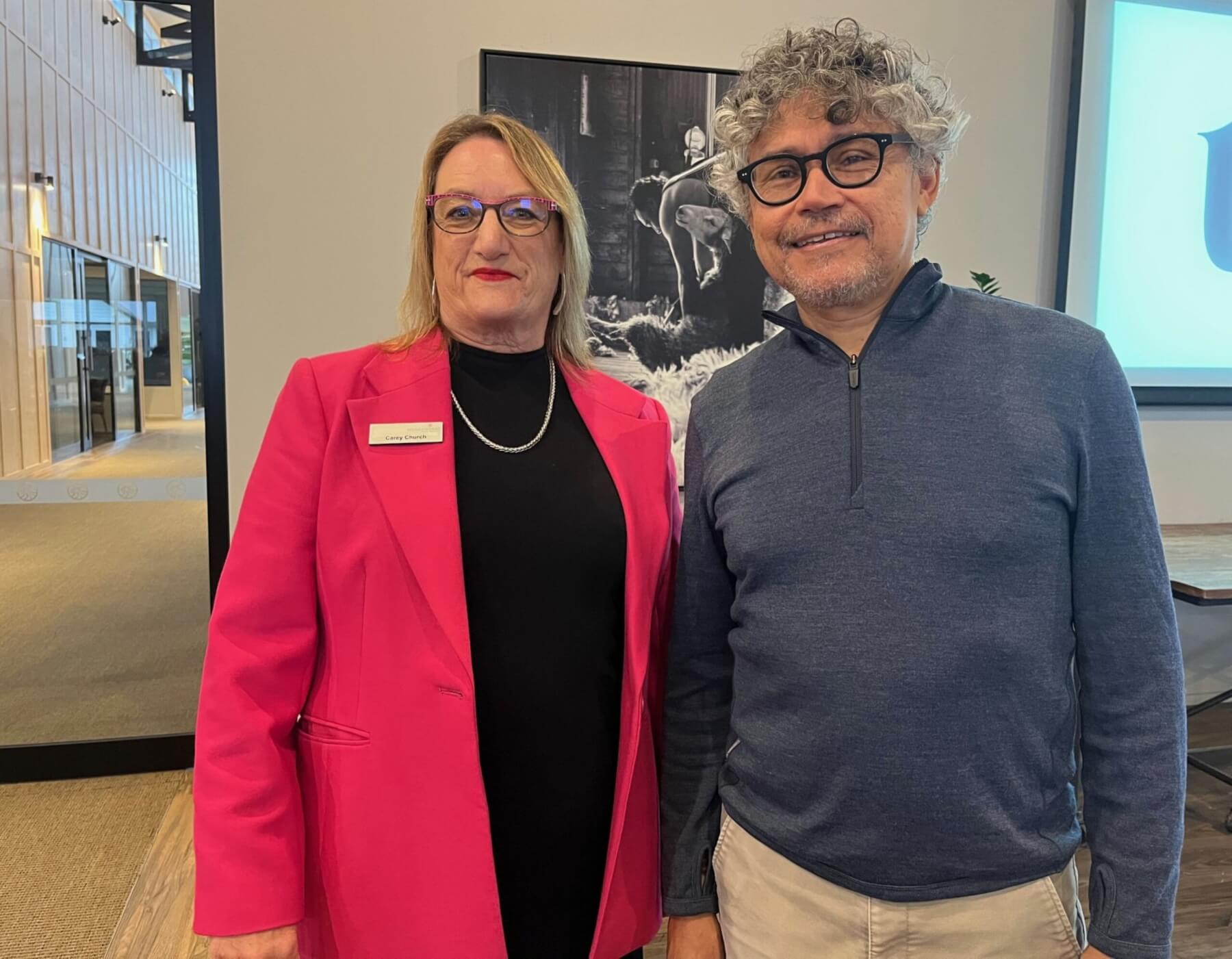
Cambridge U3A’s Carey Church with the group’s July speaker, Dr Vladimir Pacheco.
Perceptions around refugees and displaced people were unpicked this month by a Cambridge-based academic whose life has been shaped by his own flight from El Salvador in 1981.

The Pacheco family pictured in June 2020 when they reunited in Cambridge, from left Gabriela Vladimir, Nina and Kelly Pacheco. Photo: Mary Anne Gill
Dr Vladimir Pacheco was speaking at the July meeting of Cambridge U3A on the topic of Displacement and Identity: A Migrant’s Journey from fear to resilience.
Pacheco is an Associate Professor at the School of Culture and Society at Aarhus University in Denmark; he and his family have been based in Cambridge for five years.
The News carried a story in mid-2020 when he and the couple’s elder daughter were temporarily prevented from joining his New Zealand-born wife Kelly Pacheco, and their younger daughter, after being caught up in New Zealand’s Covid-related border closures.
He now works between Denmark and New Zealand, continuing his research work and encouraging debate on building inclusive societies rooted in broader understanding and placing a higher value on diversity.

Dr Vladimir Pacheco addressed the complex issues around displaced peoples at a meeting in Cambridge.
Perceptions around refugees and the reasons for their displacement were often wrong, he said.
The displacement of many millions of people globally is rooted in various causes, including ongoing international conflicts, natural disasters, the effects of climate change, common crime and gang warfare within some countries, and the fallout from economically-driven environmental conflicts – the latter including mining, the destruction of forests and the like.
“Development covers infrastructure such as new roads, plantations, the building of dams… there are people suffering because of it but who have nothing to do with it. In a way, we in countries like ours are complicit because whatever is being sourced through that development is being created for our consumption. Think chocolate, grains, oil… we are all connected economically to such development.”
The number of internally-displaced people is greater than the number of refugees, he said. In 2021 there were approximately 25 million refugees and 50 million internally displaced people in the world.
Pacheco said fewer people were dying from inter-country conflict than from common crime and gang warfare in their homelands. Increasing levels of crime was driving much of the displacement of their people.
Another cause of displacement was climate change, he said.
“The number of deaths as a result of climate change is calculated this year at around 300,000 people, with another 300 million affected by this phenomenon. That number is quite high.”
Displaced populations often move first within their own countries, and then cross borders into neighbouring countries. With each move, he said the search for a safe place adds to their initial trauma.
He said Iran has the highest number of refugees (3.5 million) in the world, followed by Turkey, Columbia, Germany and Uganda.
Pacheco said refugees and displaced peoples everywhere were facing increasing levels of xenophobia.
“That is usually driven by fear,” he said. “Plus, when things are seen to be going wrong in your country, it is easier to blame the person next to you. Many refugees face that. It is very isolating and is something that adds to the trauma of their initial displacement.”

Cambridge U3A’s Carey Church with the group’s July speaker, Dr Vladimir Pacheco. Photo: Viv Posselt








